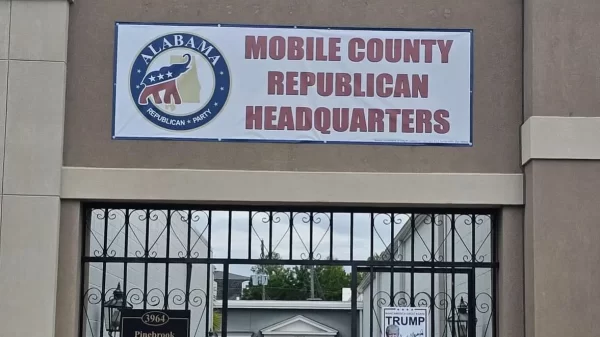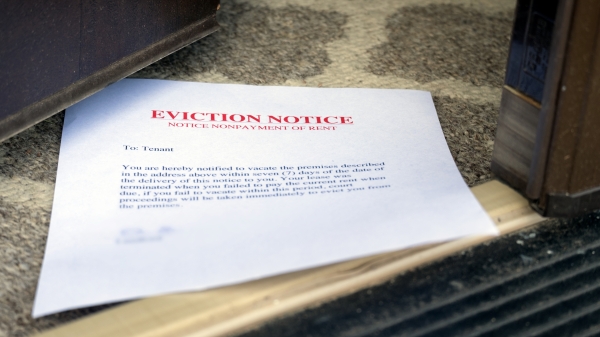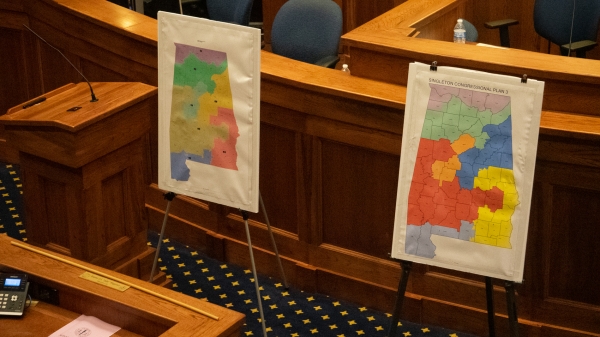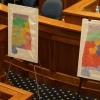A three-judge panel on Tuesday heard arguments from the state of Alabama and plaintiffs in the Allen v. Milligan case about whether the panel should require the state to submit to preclearance of its 2030 Congressional district map.
Allen v. Milligan is the case that led the same three-judge panel to conclude that the state had deliberately diluted the voting power of Black voters and order a special remedial map creating two majority-minority districts. The ruling survived an appeal to the U.S. Supreme Court.
Deuel Ross, lead counsel for the Milligan plaintiffs, argued before the court that the actions of the state—including drawing remedial maps that disregarded the court’s orders—are the reason why preclearance is a remedy under the Voting Rights Act.
“We warned the court of the state’s disturbing notion that it is free to repeat its checkmate move (of submitting new, violative maps,” Ross told the panel.
The judges indicated that putting the state under pre-clearance would be unlikely.
“I’m hard-pressed to understand,” said U.S. District Judge Terry Moorer.
The hearing boiled down to whether the judges ought to require the state to submit a new Congressional district map to the panel for clearance after the 2030 Census, or whether it is sufficient for the plaintiffs to simply sue again if the new map is perceived to once again violate the Voting Rights Act.
“Don’t we have to tread very lightly, as far as the legislature has a role to play that the court cannot play,” Moorer asked. “Isn’t it very consequential if we are holding the state back?”
The primary argument from Ross and other plaintiffs is the possibility that the state will once again attempt to implement a discriminatory map and get another “freebie” election as it did in 2022 after approving a violative map in 2021. Although plaintiffs challenged that map as soon as possible, the legal process did not allow the plaintiffs to halt the use of the map in the 2022 election, which in practice allowed the state to hold onto an extra Republican seat in the U.S. House of Representatives until the new remedial map could be put in place for the 2024 election.
A major sticking point of the hearing were “concessions” and representations made by the state in a June 9 status report that the state will allow the special master remedial map to remain in place through 2030 barring a successful appeal of that map on the merits. The heads of the House and Senate and the Secretary of State represented that they would not attempt to redraw Congressional lines for the 2026, 2028 or 2030 elections.
But Ross and the court pondered whether those representations might change once new members of the legislature and a new secretary of state takes office in 2026.
What appears likely is a mandatory injunction from the court specifically preventing the Secretary of State from using any map but the special master’s remedial map for those three elections—again, unless the state wins its appeal against that map. Although lawmakers could still potentially pass new district lines, the secretary of state would be enjoined from implementing that map.
Ross told the judges that framework would be sufficient to remedy the state’s Section 2 violation, but not its violation of the 14th Amendment of the Constitution. Alabama Solicitor General Edmund LaCour argued that the remedy for the violations was the same.
Some of the legal arguments, as Moorer summed it up, were “quibbling over almost nothing.”
U.S. Circuit Judge Stanley Marcus pressed LaCour over whether the state’s history of discrimination wouldn’t make preclearance appropriate.
“The state of Alabama shouldn’t be divorced of its history, should it,” Marcus asked. “Unfortunately for the state of Alabama, doesn’t that cut hard against your argument? You have a recent finding from this very court and you essentially told us you were not going to do what we said should and could be done. Hasn’t the state shown us who they are?”




















































